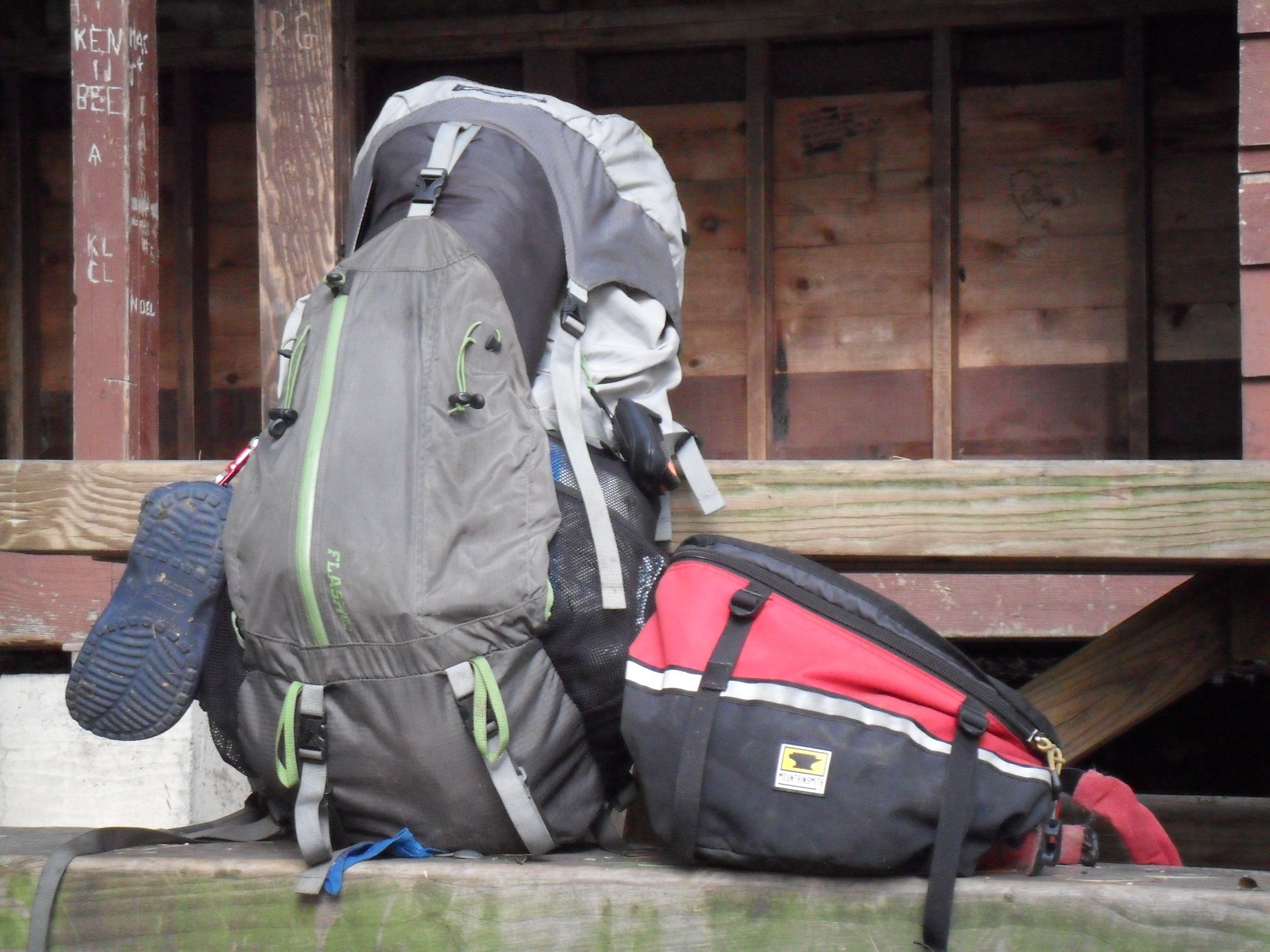Heel, Toe, Push — A Backpacker’s Journey | Part One
/“I went to the woods because I wished to live deliberately, to front only the essential facts of life, and see if I could not learn what it had to teach, and not, when I came to die, discover that I had not lived.” -Henry David Thoreau
In the middle of March, 2010, I awoke just before dawn in my two-person tent, alone in the middle of the Mountain Lake Wilderness near Blacksburg, Virginia. My feet were cold, and I was far from rested, having spent much of the night rubbing them together for warmth and listening to numerous squawks, calls and rustlings from the dark tangle of brush outside my tent. When I crept out to find a spot to pee, I found myself in a thick fog that reflected the light from my headlamp back at me. My German Shepherd, Zoey, greeted me with a curious sniff, as though to ask if all was well. Within an hour, I’d packed my sodden tent and was back on the trail, forsaking my usual hot oatmeal and coffee for the need to get moving and get warm. As I trudged through an inch or more of old snow, I fantasized about stopping to make coffee at the Bailey Shelter, around three miles south on that stretch of the Appalachian Trail.
An hour later, I stood on a rock the size of a desk top in a wind-driven mist, peering into the fog ahead for another trail marker. I knew from a previous day-hike that the trail would run for about one and a half miles over a veritable rock garden, so there was no conspicuous dip in the ground to follow, and the signature white painted blazes that mark the trail were hidden in the fog. It was perhaps the closest I’d ever come to being lost. I started off in the most likely direction and was relieved when a patch of snow offered up an old footprint. In this halting fashion, I proceeded down the trail, making record slow time and encouraged only by the stubborn idea that if Appalachian Trail thru-hikers can survive the snows of the Smokies, I could surely make it down Salt Pond Mountain to my car in a near-freezing fog.
I did, although I was so late that I met my husband Jack’s truck on Big Stony Creek Road soon after I started home. When I hadn’t called on time, he’d come out to look for me. But even the creepy squawks, cold feet and nerve-wracking descent of that sixth outing didn’t deter me. I was determined to change my life.
Why does a forty-nine year-old woman decide she’d rather sleep alone in a tent in the woods than in her warm, comfortable bed with her loving husband? When I took up backpacking, my children, Frances Lindsay and Matthew were twenty, nineteen and eighteen. I no longer had to be on hand to ferry them from place to place. I was teaching general education and English courses at Radford University part time, and spent much of the rest of my days running a home dialysis machine so that Jack, my second husband, could dialyze in the comfort of our home. At the beginning of my backpacking, we used a Fresenius machine and dialyzed four days a week. Later, we switched to a portable machine and five days a week, usually skipping Saturdays and either Tuesday or Wednesday. The machine worked by running Jack’s blood through an artificial kidney, pulling out the excess potassium, phosphorous and liquid that builds up in your body if you don’t produce urine. Once the machine was readied and the needles were in place, I could do other things, just checking on Jack periodically and recording his vital signs. Afterward, Jack would go off to work, and I would grade papers. Sometimes we’d do the treatment in the afternoon after I was finished teaching for the day or in the evening if our schedules were busy.
When we’d married in 1995, Jack was forty-nine, and he could still do mild hikes. A few years later, he began to get winded easily and was diagnosed with atrial fibrillation. He could still golf, but strenuous exercise was impossible. At the same time, I’d returned to school for my Master’s in English and started reading environmental literature and nature writing. I joined the Association for the Study of Literature and the Environment and went on a Grand Canyon rafting trip sponsored by the group, leaving Jack to dialyze in the dialysis center for two weeks.
“That trip really changed you,” Jack said on more than one occasion afterward. And he was right. Although I was already day-hiking regularly with Zoey, two weeks of sleeping under the stars and consorting with people who’d rather brave the primitive lifestyle of a Grand Canyon trip than pamper themselves at a resort both convinced and inspired me. I could be at home in the outdoors, too.




